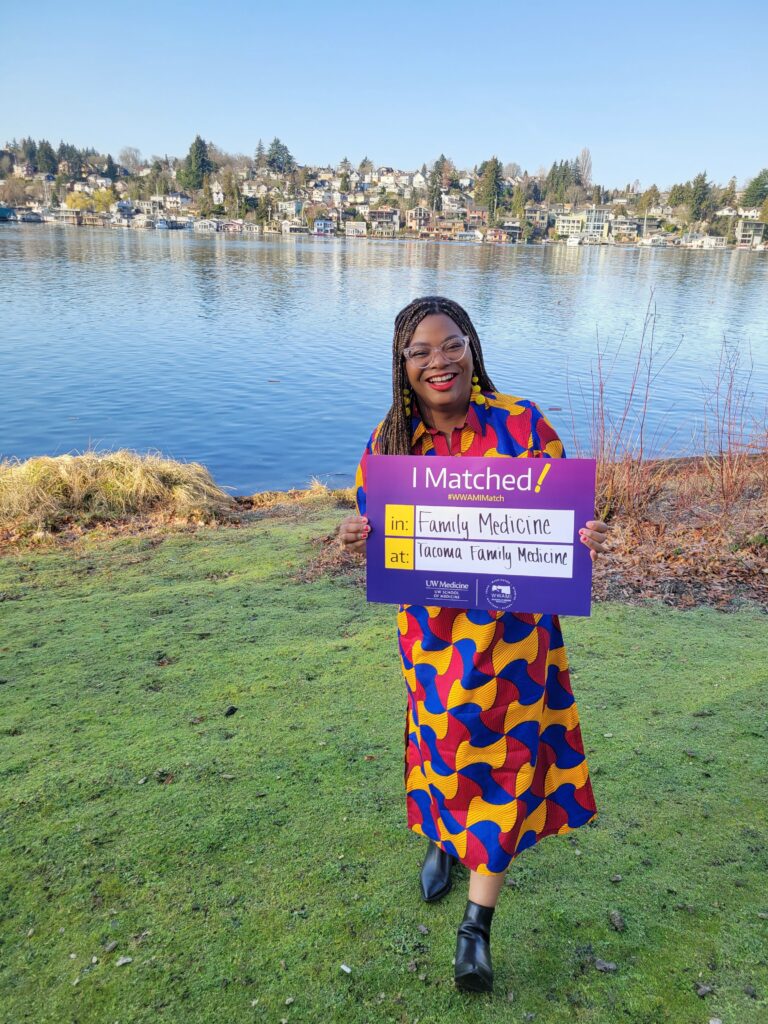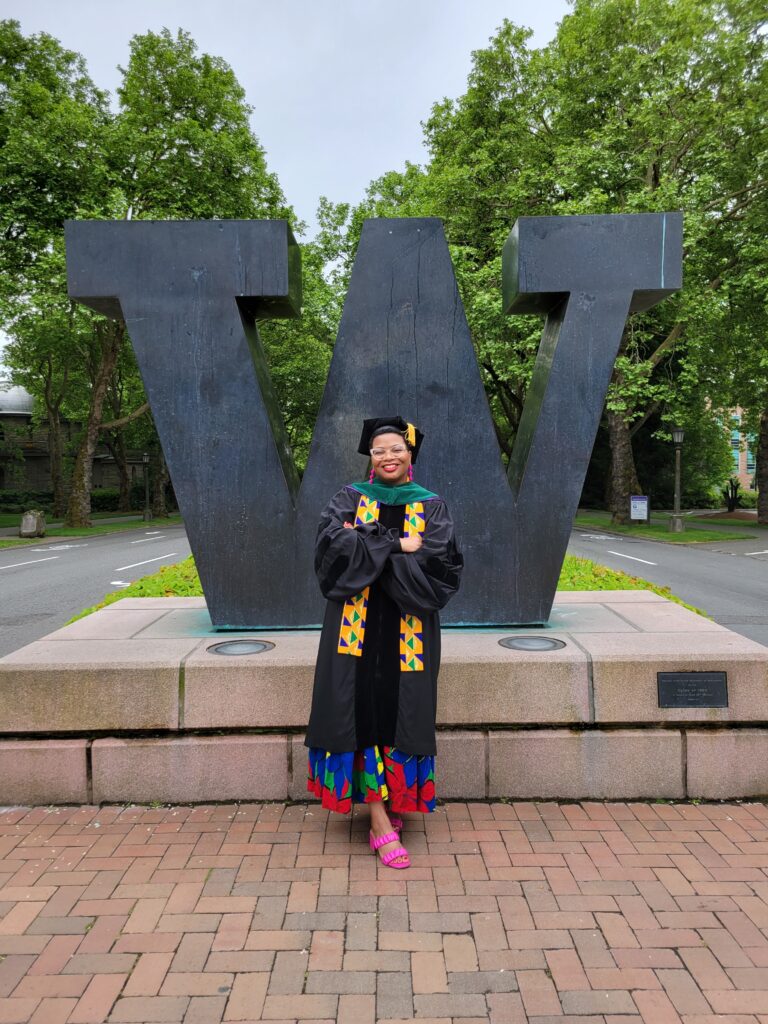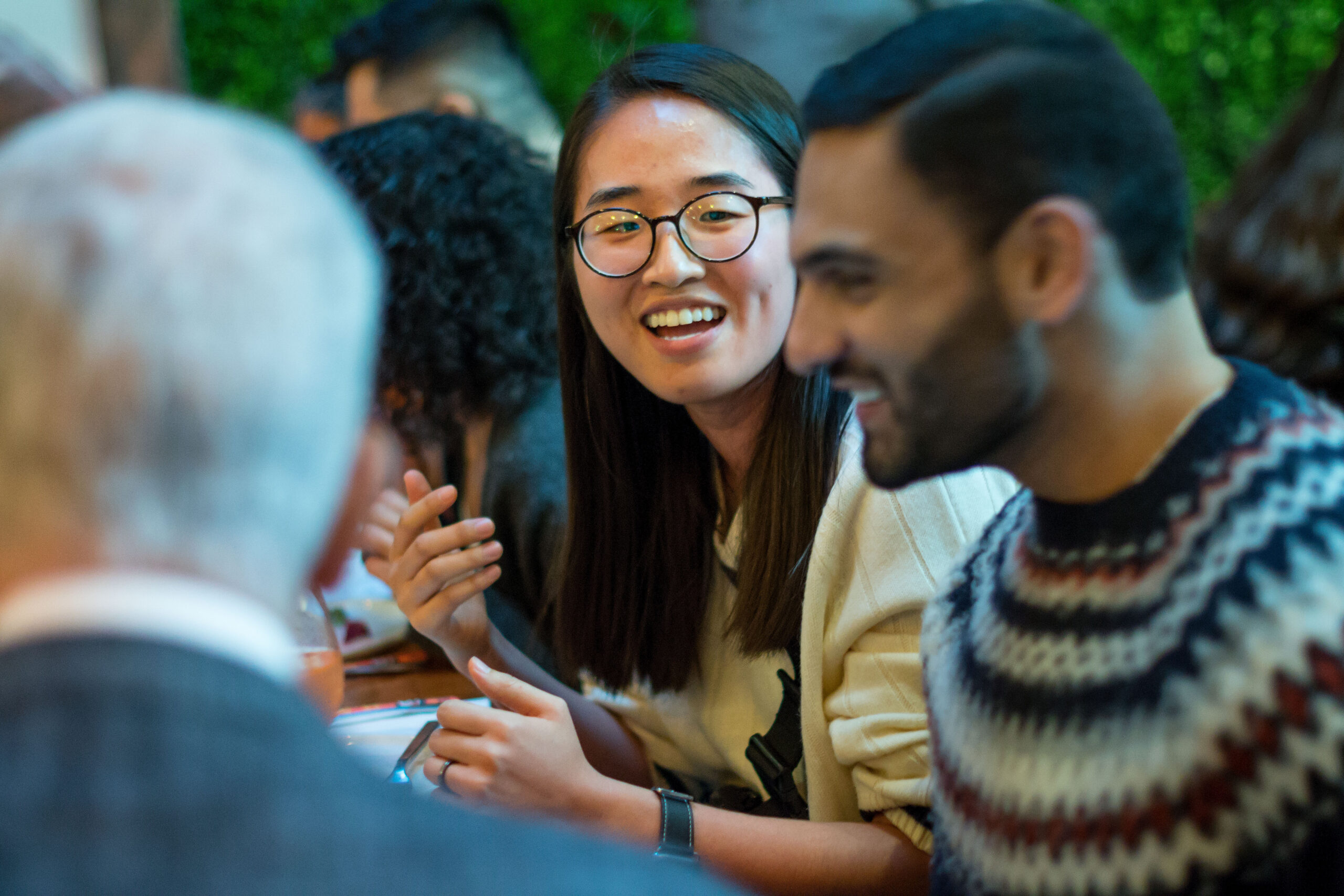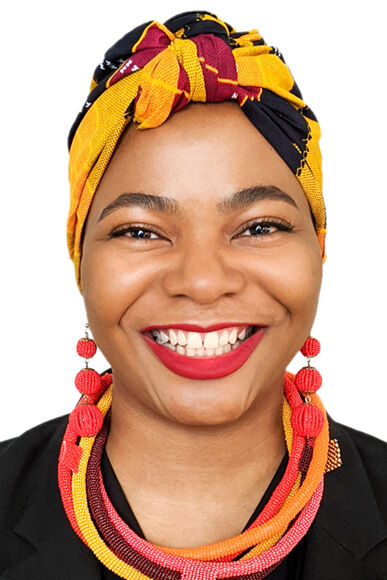- Fellow Highlights
Looking Back at the Fellowship: MPH Student Naomi Tweyo Nkinsi
2021 Paul & Daisy Soros Fellow Naomi Tweyo Nkinsi was an MD/MPH student at the University of Washington. She is starting her residency in family medicine at MultiCare Health System in Seattle.
Naomi graduated from the University of Washington with double majors in cellular molecular and developmental biology and public health. During her time in college, Naomi conducted research with the genome sciences department on congenital contracture syndromes as well as with Harvard Medical School and Boston Children’s Hospital on molecular targets for lung cancer and real-time tracking systems for the 2014 West Africa Ebola outbreak. After graduating she worked as a research technician at the Fred Hutchinson Cancer Research Center where she conducted studies to identify potential drug targets to treat non-small-cell lung cancer. Throughout all these experiences, Naomi remained committed to her goal of advocating for minoritized students in STEM by serving as a research mentor for numerous pipeline programs, one of which she herself had been a participant of in the past.
Naomi attended the University of Washington School of Medicine, working towards her Master of Public Health in global health at the University of Washington School of Public Health. Naomi is a strong advocate for centering anti-racism in medical education and ending the practice of race-based clinical practice, which continues to be common in medical practice today. She has published a paper in Academic Medicine that outlines how medical education today continues to perpetuate racial disparities in health and has been featured in NPR and several other media outlets for her continued advocacy work.
We caught up with Naomi about what’s next and what the Fellowship has meant to her:


What are the steps you’ve taken after graduating from your MD/MPH?
I graduated with my MPH in Global Health in August of 2022 and graduated with my MD in May of 2023. My next step is residency! I will be starting my intern year of family medicine residency at the MultiCare Tacoma Family Medicine Residency Program in June of 2023.
Can you tell us more about your graduate studies—what questions were you pursuing?
My studies were focused on food insecurity and how this social inequity can impact the health outcomes of those with HIV/AIDS in South Africa. Specifically, my research study was based in Umlazi, which is an urban township of Durban, South Africa.
There are so many paths beyond college—why did you feel graduate school was the best next step for you personally and/or professionally?
I knew I wanted to be a doctor as an undergrad so much of my undergrad studies were focused on getting my medical school pre-requisite courses. It was during medical school that I decided to also pursue a graduate degree and get my Master’s in Public Health (MPH) in global health. I was really interested in health inequity and population health and felt that my medical school training in those areas was not as rigorous as I wanted. Knowing that I wanted to pursue a primary care specialty in medicine, I felt getting a better grasp on public health concepts and program implementation would help me be a better leader in primary care.
Over the past two years, what personal or professional accomplishment are you most proud of?
The professional accomplishment that I’m most proud of is my work to eliminate the use of race-correction in measurements of kidney function in clinical settings. This work has transformed medicine by changing national guidelines and resulting in the re-examination of other clinical algorithms that are based on racist science. This has also led to changes in how Black patients are ranked for kidney transplants, allowing for greater access to this type of care. I’m really proud of the impact that I have made on the field of medicine and in the lives of countless patients.
What advice would you give to someone who is thinking of applying to The Paul & Daisy Soros Fellowships for New Americans?
My advice is that if you are thinking of applying, apply! For me, I felt intimidated when I saw that so many of the past Fellows were from Ivy League institutions whereas I was at a public university. I felt a bit of imposter syndrome sending in my application. I’m glad I applied and got to have such an amazing experience with the fellowship as a whole and my cohort. These are people I will be connected with for life. Don’t rule yourself out. The worst thing they can say is “no,” and that’s a word we all have to get used to hearing anyways because success often involves a lot of “nos” before we hear a “yes.” If nothing else, working on your statement and reflecting on your journey will help with other graduate program and fellowship applications! ∎
Keep Exploring
-
 Read more: The Public Voices Fellowship of PD Soros, in partnership with the Oped Project: Year Four
Read more: The Public Voices Fellowship of PD Soros, in partnership with the Oped Project: Year FourThe Public Voices Fellowship of PD Soros, in partnership with the Oped Project: Year Four
-
Read more: NOT ON MY RESUME: Ming Hsu Chen
- Fellow Highlights
- Fellows in Action
NOT ON MY RESUME: Ming Hsu Chen
-
 Read more: Kathy Ku Steps into Leadership as PDSFA Chair
Read more: Kathy Ku Steps into Leadership as PDSFA Chair- Board of Directors
- Fellowship News
Kathy Ku Steps into Leadership as PDSFA Chair
-
 Read more: Q&A with MD/PhD Student Silvia Huerta Lopez
Read more: Q&A with MD/PhD Student Silvia Huerta LopezQ&A with MD/PhD Student Silvia Huerta Lopez
